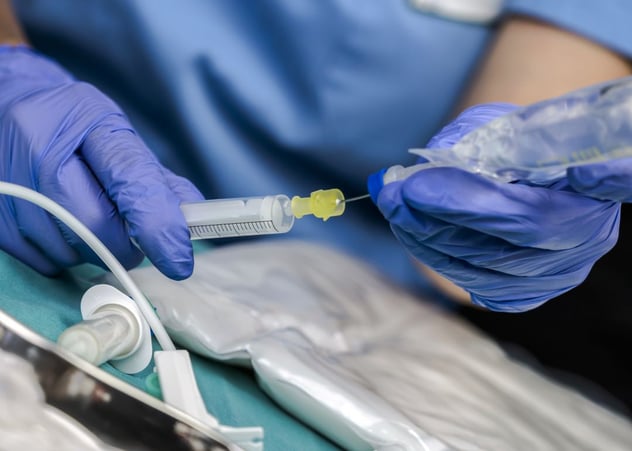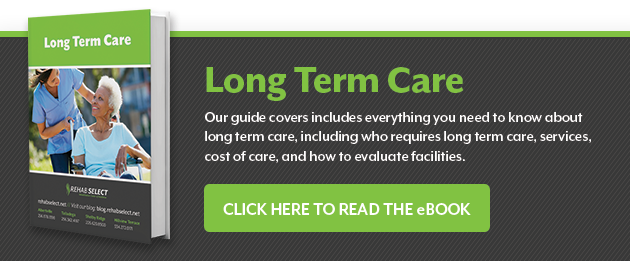
The balance of fluids and nutrients in your body affects every process, from hormone regulation to circulation to immune function and so many more. The human body requires several vital nutrients to function: vitamins, minerals, carbs, proteins, fats, and water. So what happens when you can’t get those essentials?
Suppose you or a loved one is unable to consume or digest food, such as during surgery or a gastrointestinal disturbance. In that case, your provider may suggest total parenteral nutrition (TPN) to supply your daily nutritional needs. Learning more about this type of IV treatment can make the process seem less foreign and alarming than it originally might feel. Let’s take a look at exactly how TPN works.
What is TPN Feeding?
Total parenteral nutrition (TPN) is a way to feed the body vital nutrients through an IV drip. The therapy allows medical providers to provide balanced nutrients quickly by bypassing the gastrointestinal tract and delivering the solution straight to the veins. This form of feeding prevents malnutrition and sustains life when a person is unable to eat or absorb nutrients.
The chemical formula usually enters the body through a central venous catheter, or central line. The catheter is surgically inserted into a vein, which gives the provider better access with less risk of infection.
Some adults and children require TPN for a short time, such as following surgery. Supplementation may lessen as your provider switches you to tube feeding or eating by mouth again. Others need the treatment for longer or the rest of their lives.
What does TPN consist of?
TPN supplies the body with its daily requirements, including macronutrients, micronutrients, and vitamins. The IV drip usually contains a personalized mixture of the following:
- Fluids
- Sugars
- Vitamins
- Minerals
- Electrolytes
- Amino Acids
- Lipids
These nutrients provide energy, sustain life, and help maintain optimized health while a person is unable to eat. Fluid and electrolyte balance, for example, affect hormonal and metabolic processes, while amino acids from protein feed the muscular system. Deficiency of any of these can lead to dysfunction and disease. The purpose of TPN is to replenish the nutrients lost due to reasons like malnourishment, illness, vomiting, diarrhea, or surgery.
Your provider can adjust the nutrients in the sterile solution based on your health conditions and how your body responds. Your healthcare team keeps an eye on your nutrition panel with regular blood work to ensure proper nourishment.
What is the process of intravenous feeding?
Usually, a specially trained nurse follows strict protocols to prepare, provide, and monitor your TPN treatments. He or she sometimes administers the formula while you sleep, so you don’t have to be hooked to the pump during the day.
Like with other forms of IV therapy, the nutrients you need are suspended in liquid inside a bag. A thin tube runs from the bag to a needle. The needle at the end of the tube delivers the liquid into a vein, where it enters your bloodstream.
Your doctor may recommend a central line if you’re going to need ongoing IV therapy. He or she inserts one end of a catheter into a large vein connected to a port on the outside of your body via surgery. This port makes it much easier to perform IV feedings and retrieve blood samples. Your nurse can attach the IV directly to the port rather than continue poking for smaller veins on the arm, for example.
What are the precautions you should take?
As with any medical procedure, TPN carries some minor risks. The main risk is infection at the catheter or injection site. Other potential risks include:
- Nutrient imbalances
- Blood clots
- Blood sugar abnormalities
- Liver dysfunction
These risks are lowest in facilities with careful IV procedures, sterile techniques, and highly trained staff. Careful monitoring and adjustments of the treatment can also lessen complications.
If you or a family member requires total parenteral nutrition, you want to make sure the facility that offers the procedure has the proper guidelines and staff in place to do so safely. In a long-term care setting, round-the-clock nursing care by staff with the required experience who follow the proper protocol is crucial.
When is Total Parenteral Nutrition recommended?
TPN can be used to supplement tube feedings or as a food replacement when you’re unable to eat, tolerate, or absorb food. Surgery and health conditions that interfere with blood flow or movement through the digestive tract sometimes necessitate intravenous feeding.
Some conditions for which TPN might be recommended include:
- Cancer
- Bowel obstruction
- Crohn's disease
- Intestinal failure
- Ulcerative colitis
- Short bowel syndrome
- Severe pancreatitis
Many elderly patients enter healthcare facilities undernourished, and TPN helps correct that. TPN is recommended as an alternative nutrient source for those who are incapacitated or have conditions that prevent food intake. The treatment is especially beneficial for those living in long-term rehab facilities as they recover from medical events.
How does IV therapy work in long-term rehab settings?
Few nursing facilities provide regular TPN services on-site, even though the treatment is common among older populations. Typically, patients have to be transferred to a hospital to receive this type of IV treatment, which can be a costly inconvenience.
However, offering the service on-site in nursing and rehab settings has favorable advantages for residents. Getting the treatment in a familiar environment is convenient and leads to better outcomes. Transferring to a hospital can be distressing, but administration by a familiar face in your own bed is usually preferable.
Rehab Select is one of few long-term rehab facilities in Alabama with dedicated 24-hour nursing staff who are highly skilled at supervising TPN treatments. Rehab Select nurses follow high standards for prescribed administration, line maintenance, and IV monitoring.
Most importantly, their experienced nurses keep your loved ones comfortable and nourished during their stay. If you’re looking for a long-term skilled nursing facility that offers in-house TPN services, contact Rehab Select online or over the phone today.





